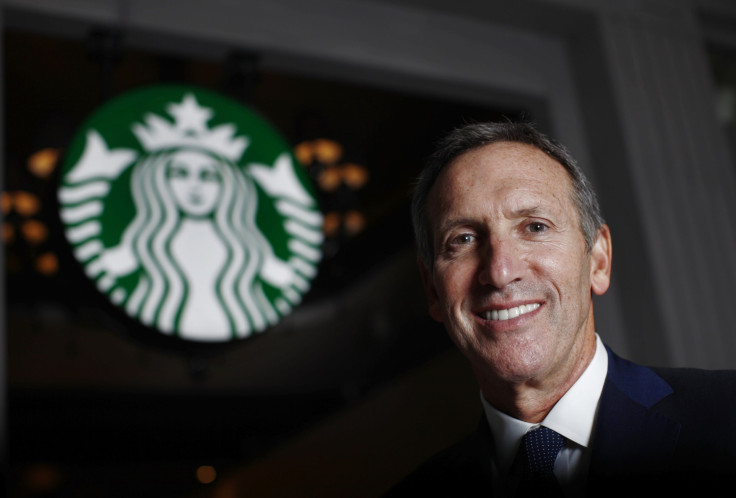Starbucks To Open At Least 3,000 Stores Over Next Five Years, China To Get 1,500 Stores By 2015


Starbucks (Nasdaq: SBUX) Chairman and CEO Howard Schultz appeared on CNBC’s “Closing Bell” where he went into detail about a two-hour shareholders meeting in which 5,000 of the company’s investors sat down for some “brand building” coffee talk.
"I am cautiously optimistic about the economy," Schultz told CNBC’s Maria Bartiromo Wednesday afternoon. "Despite the unemployment, despite the debt, consumers are spending and we are enjoying the same level of success that we've enjoyed the last 12 months in the U.S. business."
Schultz then delved into several key factors that Starbucks is counting on to increase revenues, including its partnership with Square, the mobile-payments service that allows customers to pay for products via iPhone or Android device, which Starbucks implemented in August.
“We made a $25 million investment in Square because of the seismic change in technology and specifically smartphones,” Schultz said. “We are now the leading retailer and consumer brand in the world in terms of mobile payment transactions with over 3 million a week,” he added.
The Starbucks CEO then went on to say Starbucks plans to open at least 3,000 stores over the next five years in the Americas, half of which will be in the U.S. The coffee chain will also open 1,500 stores in mainland China by the end of 2015, according to the chairman and CEO.
Despite the coffee chain’s recent success in 2012, Schultz warned, "one has to be incredibly concerned about the fragile nature of Western Europe and what's happening in Cyprus and geopolitical issues that ultimately affect the United States."
Starbucks plans to keep the ball rolling by looking for ways to continue to distinguish itself from competitors. On Tuesday, Starbucks said it bought its first coffee farm in Costa Rica. Schultz said the farm will be used as a model to teach other coffee farmers around the world high-end sustainable practices.
"We believe there's an opportunity to use technology and best practices to cross varietals, not unlike the wine industry with grapes, and create micro lots of very special rare, high-quality coffees," he said.
"This will be the beginning potentially of other acquisitions we will make … to put us in a better position not only in terms of supply but differentiation in terms of quality," he added.
© Copyright IBTimes 2024. All rights reserved.






















